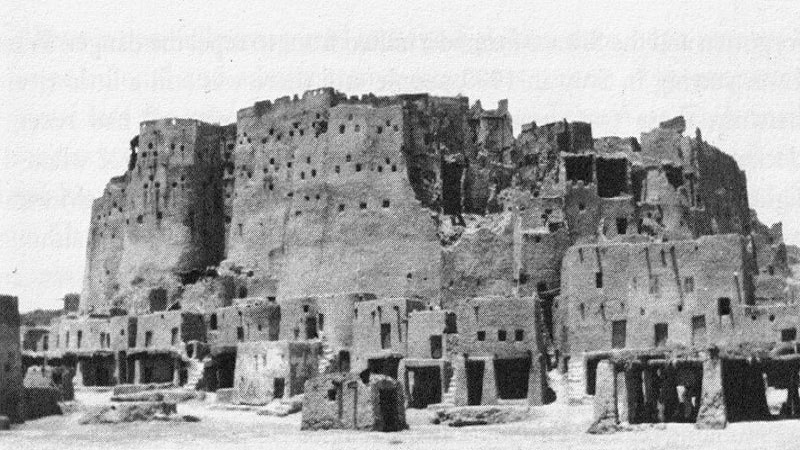Digital Heritage in a Coronavirus Endemic World
Date and time: Thursday, September 24, 2020, 4 to 5:30 pm British Summer Time (UTC+1)
Register here.
How can new technologies transform heritage stewardship and the monitoring of the environment by communities? Lessons from the Siwa Oasis.
The world is changing – sometimes more quickly and in more unexpected ways that we might imagine. This impacts not just our resources, but our heritage, our story, the legacy we have been left and the legacy we will leave. It may be our natural heritage, our built heritage or our culture.
This webinar is about how agile, immersive approaches to digital documentation can enable communities and to document and monitor fragile ecosystems and endangered sites in ways never before possible. This is illustrated by the case study of ‘The Revival of the Shali Fortress in the Oasis of Siwa.’
Heritage stewardship is important for the identity livelihoods of communities. Through digital heritage there is scope to open up new avenues of research and means of community outreach, education and advocacy.
In seeking to reimagine the heritage experience in ways that will mobilize communities and engage a new generation.
Both the conservation of Shali Fortress and sustainable tourism in the oasis, has faced many challenges from its remoteness, insecurity in neighboring Libya and now a pandemic. However, it has also highlighted a way forward in these difficult times.
The World Travel and Tourism Council has warned the COVID-19 pandemic could lead to 50 million jobs being lost in the worldwide travel and tourism industry. This may represent travel restrictions and event cancellation on the supply side, but it may also reflect anxiety about traveling on the demand side.
Whilst no one can say how long these constraints will continue for, nor what the lasting impact will be on travel and holiday habits, the perennial interest in heritage destinations is likely to continue raising questions as to how this can be nurtured during this crisis, and supported post-crisis.
What might be the short-term and medium-term opportunities?
How can people’s interest in heritage destinations be sustained?
Are there alternative revenue models for international heritage experiences?
What role might new technologies (such as virtual and augmented reality) play both to promote destinations, but also to learn about them or experience them in a more unique and personal way?
How can heritage and tourism be supported in ways that support the Sustainable Development Goals?
We have brought together an international panel to explore these questions and other questions. Attendees will have the opportunity to ask additional questions through the chat function on zoom.
TODAY’S PANEL
Prof Mark Horton – the global perspective
Professor of Archaeology & Cultural Heritage and Director of Research at the Royal Agricultural University. He is an archaeologist with a global perspective and a passion to understand and to communicate how the modern world was formed through historical process.
Prof Horton’s research employs field and scientific methodologies, and an eagerness to discover new information through investigation. His research as an archaeologist has taken him to Egypt, East Africa, Sri Lanka, Mongolia, the Caribbean, Panama, Eastern US, France and the UK.
Prof Horton has a keen interest in field methods, especially in extreme and difficult environments, and to work with archaeological scientists to generate new data from often hard to reach locations. He also specializes in landscape approaches to archaeology, to look beyond the site, to develop ways of recording and understanding the wider context.
In this work, he has used UAV/drone technology for exploring the potential new imaging techniques, both in the UK and overseas.
As director of the RAU Cultural Heritage Institute he is delivering a range of postgraduate programs that include:
- MBA in Cultural Heritage Leadership
- MSc Archaeological & Heritage Practice
- MSc Conservation and Management of Historic Buildings
- MSc Historic Environment Management
- MSc Historical Archaeology
Enas Almudaris -Project Manager
Enas Almudaris is Project Manager for The Revival of the Shali Fortress in the Siwa Oasis project. As project manager she has been responsible for the pioneering aspects of this project which have included both its holistic approach to heritage development and the 3D modeling of the site as well as immersive documentation of key structures, such as the Ateeq and Moqqabil mosques. This approach is described in the blog https://www.4dheritage.com/post/innovation-education-and-heritage-stewardship-in-a-time-of-coronavirus
Malak El-Khadem
Malak El-Khadem has a special interest in how we understand, communicate and engage new audiences with historical sites. She is the author of the immersive tour of the Ateeq mosque, which demonstrates the holistic approach to conservation which EQI has been one of the pioneers in Egypt. This immersive tour can be found at https://www.4dheritage.com/post/the-conservation-of-the-ateeq-mosque-a-case-study-in-holistic-heritage-stewardship


